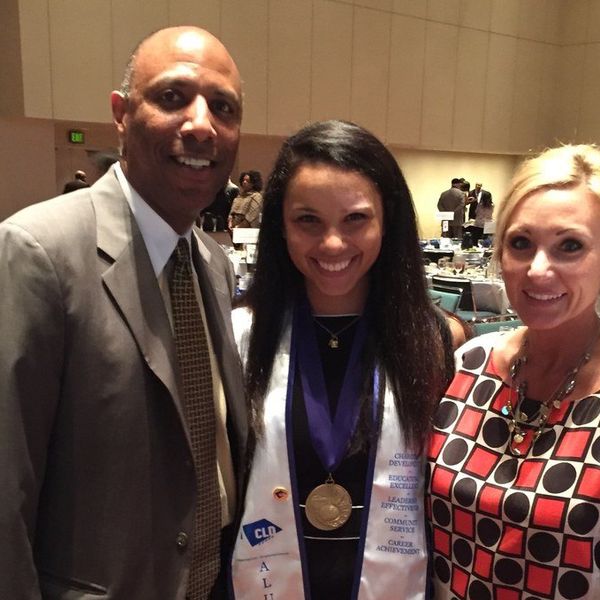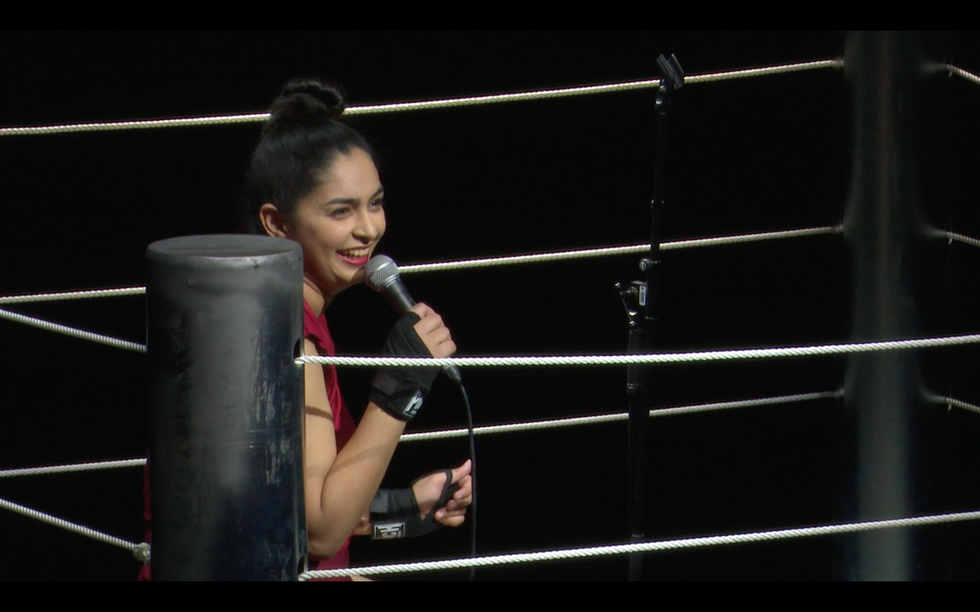After graduating in 2015, I moved back to my hometown— Muscat. It’s a small city that feels like a town. It essentially exists on two sides of a massive, wide road. That’s all it really is. Amidst undercurrents of prolonged tension over the status of expatriate and migrant workers, a current I’ve been all too familiar with, there exist pockets of small communities that embrace certain Western ideals. The city itself is a laid back, confused amalgamation— certain areas of city retain the old architecture while others espouse high-rise buildings that are now becoming a new history. But still, people persist, albeit lazily, to make things happen.
Among these things, I recently found a group of people, and by people I mean men, who had revived their comedy group under the name of Oman Comedy Central. An acquaintance suggested I come along since I had mentioned that I used to do stand-up back in university. While the gesture of inviting me was well meaning, all I wondered about was walking into one more room with testosterone filling the gaps everywhere. Sometimes, being a woman in Muscat just feels wrong— like you’re experiencing a massive glitch in the matrix. Surprisingly, I was welcomed and within a month, I went up on stage for a 5 minute set this past weekend.
My set was a series of jokes about sex and how, as a young woman in the city I live, getting it had started to prove to be so difficult that I had started using crying to replace the lack of sex I was facing. It wasn’t a clean, prim and proper set by any means. I made lots of ‘unwomanly’ faces, talked about how excited I was to see a man committed to eating me out and how sex is always great for men and barely even good on most occasions for women. While a room full of only about 70-80 people saw it, it was revolutionary for a place like this. A woman was claiming space in a patriarchal Muscat, standing her ground on a small stage, making sex jokes nonchalantly, like it was breakfast food. When you’re up on stage, aware that the words coming out of your mouth are hitting your audience like bullets and making them uncomfortable, it is power, its a specific type of energy, a dynamic that women don’t often get in the real world. The mode of stand-up comedy lends to women like me the exclusive opportunity to have a room full of people listen without interruption. I don’t have to go into the details and list out how women are constantly interrupted and told to be quiet overtly and covertly— we just saw what happened to Senator Elizabeth Warren.
How ironic that something similar was happening in a different way on the other side of the planet in a bar that was trying so terribly hard to come off as Irish because I did receive a ton of applause but it wasn’t meant to last. I vaguely recall being heckled and drowning out my heckler’s voice by wailing louder than I intended to at the end of my set, where I cried myself to finishing. I recall the crowd hooting when I mentioned that I was single. Of course, that was validation for my appearance, which I enjoyed— I had a male comedian tell me, “Damn, you looked fine that night. Won’t lie.” But when the topic turned to my jokes, I was suddenly ‘bold’ and ‘too sexual’ for men. These were men I call my friends, whose opinions I value, who have known what a long, long time it took me to get back to writing and performing. While that itself was a slight to my efforts, what added insult to injury was the fact that they tried to be polite about it, as if they were trying so hard to hide the inherent sexism in their words because ultimately, these men really ‘cared’ about me. And above all, how unsurprising that the women in the bar, women I didn’t know came up to me, telling me to keep up the good work and that I was extremely brave to have performed what I did.
While several people would be quick to point out that bold is a compliment, pairing it with ‘too sexual’ is what makes sexism. Because male comedians take incredible liberties and engage in women bashing but when a woman steps up to the plate and talks, foul-mouthed and frothing at the seams the same way men do, she’s suddenly too sexual. She’s out of line for encroaching upon the patriarchy, she’s wrong to question the order— she’s too bold and because it would be socially unacceptable for you to fly into rage, you tell her politely to turn the sexuality on her performances down. You politely throw in a few lines after the insult, just to add some more salt— I know you were nervous and I hope you get good reviews. Personally that’s all I would say.
I read an article about Ali Wong, an Asian-American comedian on the New Yorker, who I personally consider an idol. The entire article is about how she’s used her differences— being Asian and being a woman to make jokes about everything women don’t traditionally talk about— being sexual, being perverted and being animals, just like men do and get lauded for. While she is perhaps afforded a more liberal environment for the nature of her jokes, I wasn’t in a room full of people who belonged to a different generation than myself. And yet, I was off stage, mulling over the thoughts my male counterparts had offered to me so ‘politely’ for what? My honesty. For the plain and simple truth that women are just as sexual and just as frustrated as them. For the truth that women are tired of taking a beating at the expense of a man’s success over humor that specifically degrades women.
Sexism is a systemic problem. We’re all aware that it is. What is infuriating is that it is used to undermine effort; it is used to tamper with the self-worth of women. It is employed so often by men to claim the upper hand and avoid injury to their ego and social standing. What makes it worse is that other men, even if they disagree, fall into the bystander effect where they implicitly agree with the kind of men that considered my capacity for unabashed sexual comedy too bold by maintaining their silence. While the problem is identified, even men, who are traditionally in a position of power, refuse to exert it. Moreover, it's not the first time I've been chided for my overt display of sexuality. My senior thesis, in which I used comedy to talk about rape and also spoke explicitly about men's bodies, some men took it as a grave insult while the women wrote me thank you notes, even at a liberal arts university. The experience of standing before a man seething under his skin while he explains to you how you didn't have the right to speak 'that way' is not strange for women. It’s not a tit for tat tactic when women are sexual on stage, when they talk openly about how sad their sex lives are and when they talk about how incapable men are when it comes to giving it good. It’s reclamation— it is women taking from men the same thing that men have used for so long against women: a voice.
I want to be gross. I want be the Indian Ali Wong. I want to make the faces that men make when they finish and I want to talk about how the patriarchy fails and degrades me, despite all of my earnest and intelligent efforts. I want to continue using a platform like stand-up comedy that forces men to be quiet when I am speaking. There are no arcane rules in stand-up comedy. It’s one person with a mic and a lashing tongue. I may be an island up on stage— a lonely, vulnerable island— but I have a medium and a voice, which is plenty to turn around the sexism that has begun to fill the air of the bar I performed at. Maybe, I’ll make those embarrassing faces so often that Muscat will hand me an award for bravery and men will provide well-meaning, thoughtful compliments for my honest reflections on the absurdly miserable lives of women who fight for their space and voice here and everywhere.





















